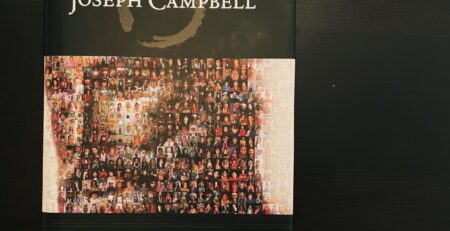How to go From Concrete to Abstract in Personal Essays
Yesterday one of my best friends stationed in Germany messaged me to say she was bombing into Texas for 24 hours on some military-related duty. Unfortunately, it was San Antonio, not Houston, where she would make her Texas pit stop.
“It’s not that far!” I had said, “It’s only three hours. I’ll come with Penny. We’ll have a girls’ trip. We’ll spend the night. We’ll see the Alamo!” I made the mistake of telling Penny. She packed her school bag with a set of pajamas and a stuffy.
I had decided I should read the latest on COVID, however, and was beyond dismayed to see a reported spike in cases in Texas. I mulled over my plans and decided to do some informal Operational Risk Management, which is a thing in the military. It involves identifying risk factors, mitigating the risks, and determining whether it’s possible to drive down risks to an acceptable level. To make a long story short, my safety measures won out. I’m in San Antonio with Penny visiting my friend, and so far I’m really glad we made the trip. But this COVID stuff sucks. On top of everything else, it has introduced guilt and doubt in the most benign (and joyful) activities.
When first I decided I wanted to write in earnest, I started with personal essays. After all, I own my own story and I know my own story, and it’s a very logical, low-barrier-to-entry place to start. Even so, when writing a personal essay, the question always becomes, “What do I write about?” My first instinct on what to write usually came in the form of an abstract, vague idea. Maybe I’d want to write about my difficulties in motherhood. Or maybe I’d want to write about transitioning from the military and feeling like a misfit. Both of these ideas are abstract and vague. At best they’re ill-defined, fuzzy feelings, and it’s hard to attach language to the fuzzy and ill-defined.
I have found that the act of writing personal essays is an act of discovery. In fact, this is the work of a writer: to discover the essence, truth, or insight into the thing she’s trying to say and to convey this to the reader. I would guess that many times when a writer embarks on a work thinking she’s headed in one direction, she’s often surprised with where she lands at the end of that process. Rather than starting with an abstract idea, start in physical time, space, and situation, choosing a point from which to narrate a story and allowing the scenario to reveal the abstract thing you want to say about it. Here’s an excerpt from Sean Dietrich
I’m sitting in a space-age medical chair, gazing into high-tech eye-doctor equipment. The optometrist is shining an aircraft landing light into my eyes and giving me an exam.
The doctor sort of talks to himself while inspecting me. He clicks his teeth and makes doctor sounds, like: “Mmm hmm, yep. Oooooh yeah.”
And I keep asking what’s going on, but he doesn’t answer me.
I don’t like to admit this about myself, but I don’t like doctors. They scare me because they are always doing More Tests. It’s just part of who they are.
You have a doctor sitting in an office full of high-dollar, kick-butt, slick-as-a-whistle medical equipment and you can bet your HMO he’s going to do More Tests whether you need them or not.
I imagine that Sean Deitrich had this doctor visit and found it interesting that he’s skeptical about what doctors tell him. Rather than start from that feeling of skepticism, he pinpointed the specific scenario where he felt it and has sort of defined this feeling of “I’m skeptical of what doctors tell me,” via this essay. Personally, I’m not skeptical of doctors, but after reading this, I can empathize with why he feels this way, and I might remember this next time my doctor suggests More Tests for me.
Tell your story, whatever it is. Do the work to figure out why you care to tell it. The more you tinker with it and the more you do this, the easier it will become to uncover what’s meaningful. But the work is important. If you just tell the story of the day without revealing any essence or truth, the story is of little value to the reader.





Leave a Reply